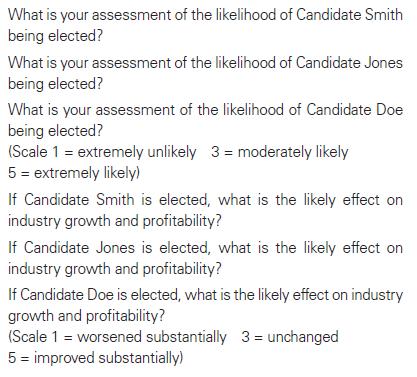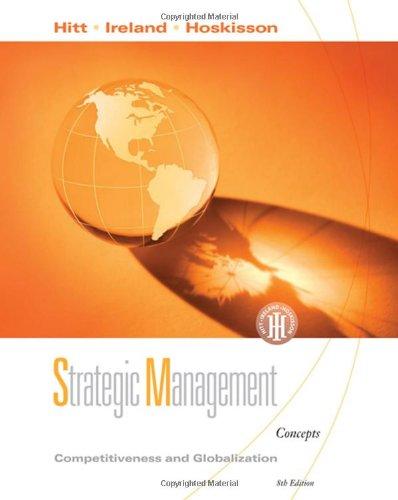In ancient Greece, people traveled to the temple at Delphi when they had important questions about the
Question:
In ancient Greece, people traveled to the temple at Delphi when they had important questions about the future. A priestess, who was ostensibly a direct connection to the god Apollo, would answer these questions in the form of a riddle. Today, executives are still faced with significant challenges in predicting the future, albeit with different processes.
Many strategies rely in part on qualitative forecasts and untested assumptions, simply because hard data may not exist, or because the data may be of poor quality. Such problems are particularly common in new product segments (e.g., early stages of the Internet) or in emerging economies (e.g., when Western firms first started selling in China). When making a subjective forecast, it is often helpful to rely on multiple opinions and perspectives. However, group discussions can often be skewed if some participants are more vocal than others, or if group members differ by status. The Delphi method provides a process for helping a group to reach consensus while minimizing individual biases.
The decision process starts with the selection of a question, or set of questions. A facilitator is designated to manage the process, and a group of experts is selected to provide input. The facilitator polls each expert, and creates a summary of the responses. The summary is then sent back to the expert pool, and each person is given the opportunity to revise his or her estimates. This process repeats until the summary scores have stabilized.
Part One
Select one group member to serve as facilitator. The facilitator’s role is to select an issue currently in the news that has implications for a specific industry. Once a topic has been selected, the facilitator should prepare a couple of survey questions that can be numerically ranked by the expert panel (i.e., the rest of the team). For example, assume that the topic was an upcoming election, and how the results of that election might affect the attractiveness of an industry. If the election was to be among three candidates, the sample questions might look like the following:
Part Two
The facilitator should administer the survey to each group member. Prepare a summary that includes the average score and range for each item. Repeat the survey, using the same questions, two more times following this process.
Part Three
As a group, discuss the following questions:
• How much did the feedback of composite scores affect your assessment?
• In your opinion, were the final scores an improvement over the initial scores? Why or why not?
• How might a Delphi process lead to low-quality results? What steps could you take to help ensure a more accurate forecast?
• Bonus question: How is the logic of the Delphi method similar to that of the book Wisdom of Crowds, by James Surowiecki?
Step by Step Answer:

Strategic Management Competitiveness And Globalization Concepts
ISBN: 9780324581126
8th Edition
Authors: Michael A. Hitt, R. Duane Ireland, Robert E. Hoskisson





